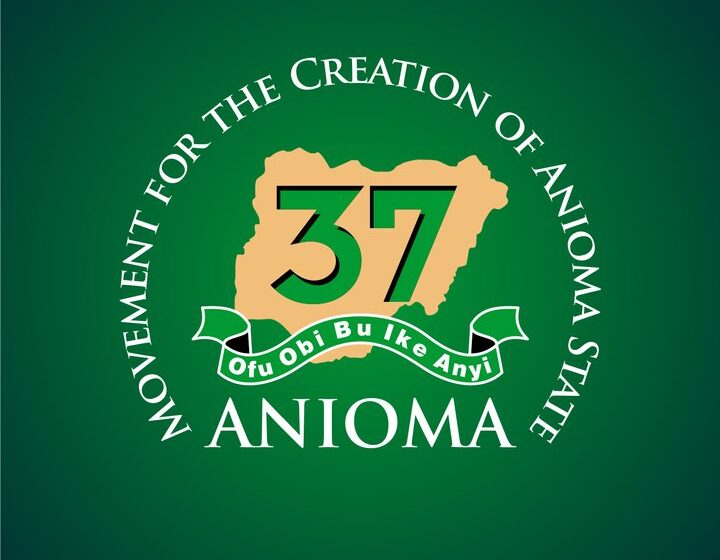Anioma State: What you need to know about Nigeria’s proposed 37th state

Anioma State Movement
The proposal to create Anioma State as Nigeria’s 37th state, carved from Delta State, has gained national attention after mixed developments in Abuja and Asaba. Led by Senator Ned Nwoko and backed by pan-Igbo groups, the plan reflects growing demands for equity, but saw opposition when Delta North lawmakers resisted signing the founding document.
Senator Nwoko’s Push Gains National Backing
Senator Ned Nwoko, representing Delta North, has championed Senate Bill 481 to establish Anioma State. He personally secured endorsements from over 80 senators and presented amendments to the 1999 Constitution to include Anioma among Nigeria’s states.
Complementing political support, a pan-Igbo socio‑cultural organization, Ndi Asuu Bia, submitted a formal memo urging Senate approval, citing the current five‑to‑six state imbalance in the Southeast and advocating that Anioma would align the geopolitical structure.
Cultural Voices Advocate Equity and Inclusion
Traditional rulers and pan-Igbo bodies, including the Ndigbo Progressive Traditional Rulers Forum, have voiced strong support. They argue Anioma State’s creation is overdue and essential to correcting historical marginalization.
Proponents assert the formation of Anioma will reunite fragmented Igbo communities, bring governance closer to the grassroots, and enhance regional cohesion across the South-East.
Setback: Delta North Lawmakers Refuse Signature
Despite Abuja momentum, Delta North lawmakers in the State House rejected a request to append their signatures to a document supporting Anioma State, citing lack of transparency and insisting they would not sign blank papers.
The lawmakers, according to sources, demanded clear documentation before endorsing the state creation process, signaling skepticism about Senator Nwoko’s approach.
READ MORE
Opposition coalition adopts ADC for 2027 elections….what you need to know
Local Government Chairmen Disown Motion
Further complications emerged when the nine Delta North LG chairmen disavowed a purported endorsement document, alleging forged signatures and urging that due process be observed.
While not against the idea of Anioma, the chairmen emphasized that legitimate state creation must follow legal steps and obtain genuine support from stakeholders.
Public Hearings Spark Enthusiasm and Controversy
The Senate’s constitutional review public hearings in Enugu and Ikot-Ekpene drew widespread engagement. Thousands including traditional rulers, youth advocates, and civil society rallied in support of Anioma as a justice-driven initiative.
However, controversy arose in Enugu when a group of “rented supporters” accused organizers of abandoning them after the hearing, raising questions about the integrity and public handling of advocacy efforts.
Equity Argument: Southeast State Imbalance
Southeast groups point out current geopolitical disparity: the region has just five states while others have six or more. Anioma would bring the number to parity, ensuring fair representation in the federal structure.
The proposed amendment includes formal insertion of Anioma into the Constitution’s First Schedule, identifying local governments and capital city, cementing its federal legitimacy.
Next Steps: Senate Deliberation and Delta Assembly Role
The bill will proceed to the Senate Committee on Constitutional Review for further scrutiny, including hearings and input from Delta State stakeholders. Senate President Godswill Akpabio underscored the importance of public opinion in the process.
For Anioma State to become reality, it must secure a simple majority in 24 State Houses of Assembly, including Delta’s. The current lack of endorsement from Delta North lawmakers illustrates the threshold Anioma advocates must overcome.
What This Means for Delta and Southeast Nigeria
If created, Anioma State would comprise nine LGAs, with Asaba, a historic trade center and former colonial capital, as its likely capital. It could unlock economic and infrastructural development tailored to local needs.
Conversely, Delta State would face a significant reconfiguration, losing territory and resources. The process may reopen broader debates over restructuring and regional governance in Nigeria.
Final Analysis: Promise, Pitfalls, and Political Will
The Anioma State campaign highlights deep feelings about identity, representation, and fairness in Nigeria’s state creation process. Widespread backing from senators and cultural groups demonstrates genuine support, but challenges persist, not least ensuring Delta State stakeholders are aligned.
The likelihood of Anioma State’s creation hinges on inclusive negotiations, transparent advocacy, and unified consent across political and traditional institutions. Without broad stakeholder alignment, what began as a justice-driven momentum could falter in the halls of power.

